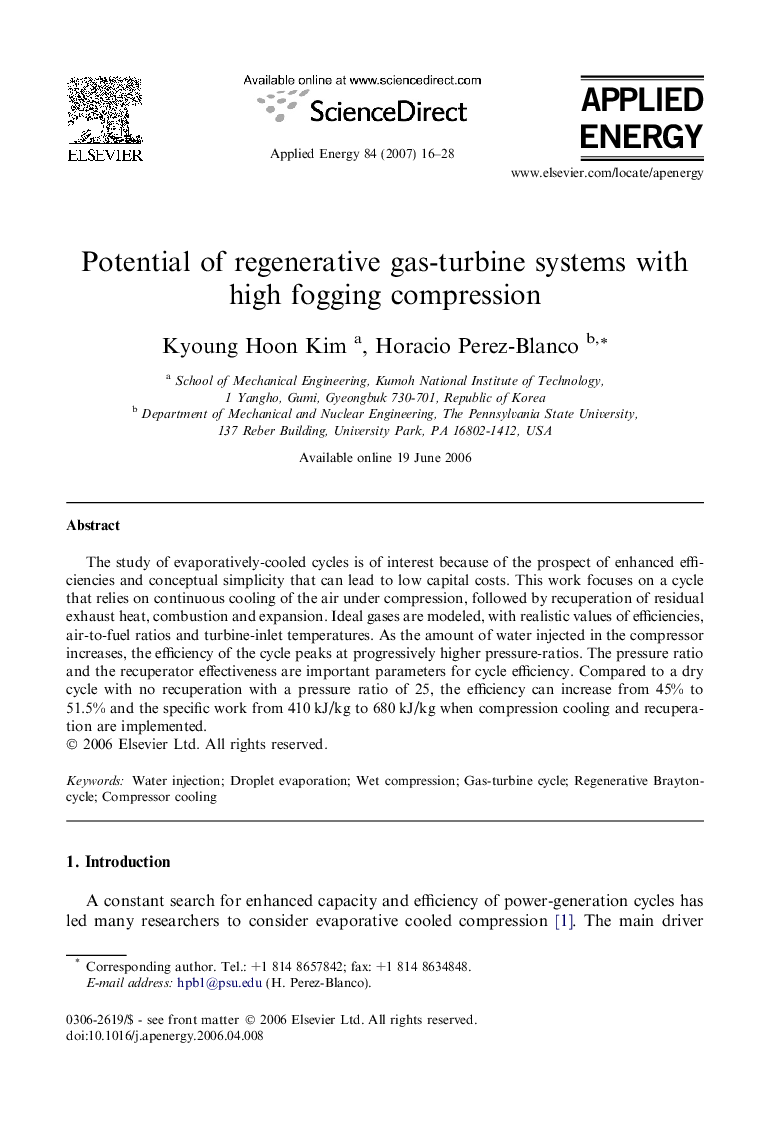| Article ID | Journal | Published Year | Pages | File Type |
|---|---|---|---|---|
| 245284 | Applied Energy | 2007 | 13 Pages |
The study of evaporatively-cooled cycles is of interest because of the prospect of enhanced efficiencies and conceptual simplicity that can lead to low capital costs. This work focuses on a cycle that relies on continuous cooling of the air under compression, followed by recuperation of residual exhaust heat, combustion and expansion. Ideal gases are modeled, with realistic values of efficiencies, air-to-fuel ratios and turbine-inlet temperatures. As the amount of water injected in the compressor increases, the efficiency of the cycle peaks at progressively higher pressure-ratios. The pressure ratio and the recuperator effectiveness are important parameters for cycle efficiency. Compared to a dry cycle with no recuperation with a pressure ratio of 25, the efficiency can increase from 45% to 51.5% and the specific work from 410 kJ/kg to 680 kJ/kg when compression cooling and recuperation are implemented.
